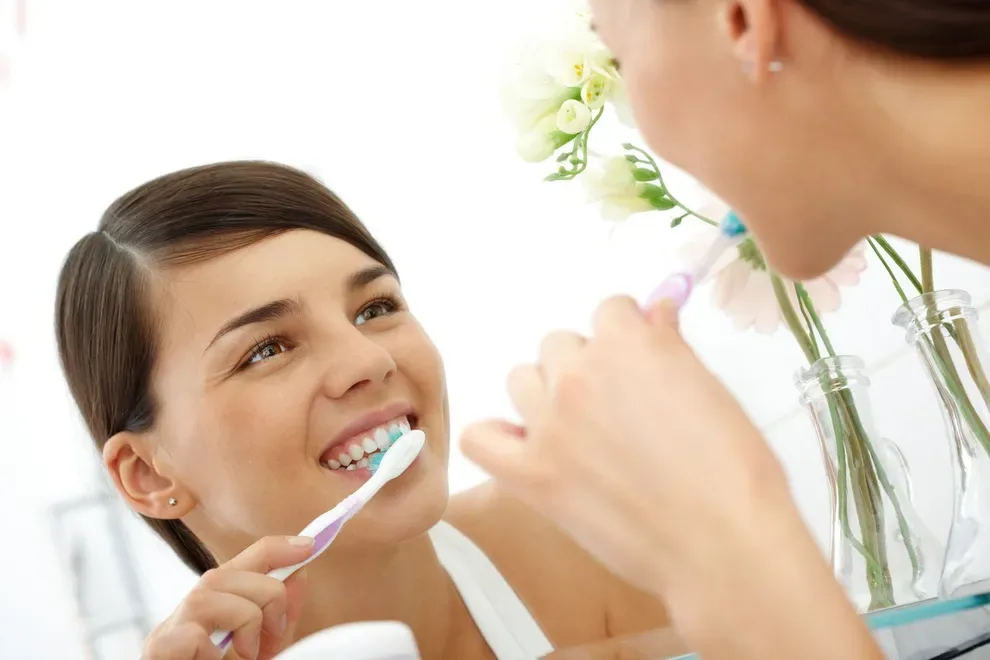How Long Should You Brush Your Teeth?

Table of Contents
- How Long Should You Brush Your Teeth
- How Many Times a Day Should You Brush
- Does it Matter When You Brush Your Teeth
- What If Your Teeth Are Sensitive
- What Will Happen If You Don’t Follow Guidelines
- References
Are you concerned about your oral health? Regular brushing is one of the practices experts recommend for maintaining proper oral hygiene. You prevent biofilm (plaque and tartar) buildup, the development of cavities and gum disease when you brush and floss your teeth and use a mouthwash to rinse your mouth twice a day.
Even so, your effectiveness of brushing relies on multiple factors that include the frequency, technique, time, and duration of brushing among others. Despite the presence of guidelines by reputable authorities such as the American Dental Association on keeping good oral health, brushing habits still vary widely.
The tooth-brushing myths that exist today may be fueling such differences. Let’s distinguish between facts and myths about brushing.
How Long Should You Brush Your Teeth Each Time?
The American Dental Association recommends brushing for two minutes every time you clean your teeth, regardless of the type of your toothbrush. While electric brushes have greater cleaning power compared to manual ones, it does not mean you spend lesser time brushing.
Most people spend less than a minute cleaning their teeth. And this translates to poor clearance of plaque and tartar, which increases the risk of dental caries formation as well as gum diseases. According to the Journal of Dental Hygiene 2009 Survey, the amount of plaque removed is dependent on the duration of brushing.
For instance, a three-minute cleaning gave 55 percent more plaque removal compared to the 30-second brushing. On the other hand, a two-minute brushing removed 26-percent more plaques than 45-second cleaning.
How Many Times a Day Should You Brush?
As times change and evidence increases, dental practices also change. Previously, brushing once a day was the gold standard. The ADA now recommends brushing at least twice a day using a fluoride toothpaste for optimal oral health.
If you consume more sugary or starchy foods, brushing after every meal helps remove the debris that would otherwise lead to teeth demineralization. The more you brush following the right technique in a day, the faster you master the art.
Brushing at least two times a day for at least two minutes will remove a considerable amount of biofilm. You should also consider flossing once a day to help keep food bits from lodging in your gums and between your teeth. Left alone, these bits cause bad breath and, worse, set the stage for cavities and other periodontal issues.
Dentists advise that adults use toothpaste with at least 1,350 parts per million (ppm) fluoride.
Does it Matter When You Brush Your Teeth?
Whether you brush your teeth twice a day or after every meal, timing matters. People who clean their mouths should ideally brush immediately after waking up and before going to bed.
While you sleep, your saliva secretion declines. This lack of saliva gives bacteria room to multiply while fermenting the sugars in your mouth to produce acid, which erodes the enamel.
Brushing in the morning eliminates these bacteria and averts possible enamel erosion. Before you retire to bed, also ensure you brush to remove particles accumulated over the day that would otherwise provide a nidus for bacterial multiplication.
If you brush after every meal, it’s important to wait at least one hour after eating, especially with acidic foods. Because acids weakens your enamel, the risk of erosion is increased if you brush immediately after eating.
If Your Teeth Are Sensitive, Should You Still Brush that Long?
Teeth sensitivity stems from erosion of your enamel. This erosion exposes the nerve-rich inner layers.
Despite the discomfort, sensitivity is not a contraindication for brushing. You should maintain a regular schedule of brushing using either cold or warm water depending on what your teeth are sensitive to.
Failure to keep the routine of brushing for two minutes is likely to worsen the problem, as more plaque and tartar will accumulate to cause caries.
What Will Happen If You Don’t Follow the Dentist's Guidelines?
Adhering to the expert guidelines is integral in establishing good oral health. Brushing according to current recommendations on frequency, duration and timing will help you to remove debris that can cause several dental issues.
You are at risk of developing periodontal disease, tooth decay, and other health problems if you don’t follow the dentist guidelines that include visiting a qualified oral health doctor for a checkup, once or twice a year.
Poor dental hygiene predisposes you to the development of serious systemic infections such as heart disease, which may be fatal.
